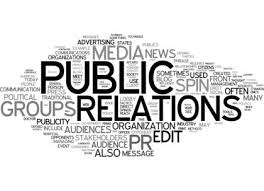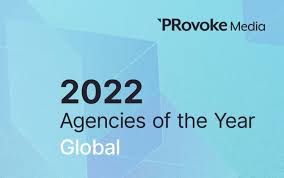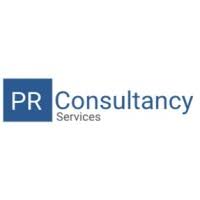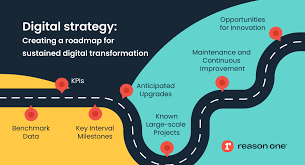Navigating the World of PR: Understanding the Power of Public Relations
The Power of PR: Building Strong Relationships and Reputations
Public Relations (PR) plays a crucial role in shaping how organisations communicate with their audiences, manage their reputation, and build strong relationships. In today’s fast-paced digital world, the importance of PR has only grown, as businesses strive to connect with their stakeholders in meaningful ways.
One of the key aspects of PR is managing a company’s reputation. Through strategic communication efforts, PR professionals work to maintain a positive image for the organisation and address any potential issues that may arise. By proactively engaging with the media, stakeholders, and the public, PR helps to shape public perception and build trust.
Effective PR also involves building strong relationships with various stakeholders, including customers, employees, investors, and the community. By fostering open communication channels and engaging with these groups on a regular basis, organisations can create a loyal following and establish themselves as trustworthy and reliable partners.
PR is not just about managing crises or promoting products; it is about creating meaningful connections that go beyond transactions. By telling compelling stories, sharing valuable insights, and engaging in two-way communication, organisations can build lasting relationships that drive loyalty and advocacy.
In today’s digital age, social media has become an essential tool for PR professionals to reach their target audiences effectively. Platforms such as Twitter, Facebook, LinkedIn, and Instagram offer unique opportunities to engage with stakeholders in real-time and amplify key messages to a wider audience.
Ultimately, PR is about building bridges between organisations and their audiences. It is about listening to feedback, addressing concerns transparently, and celebrating successes together. By investing in strong PR strategies and embracing the power of communication, organisations can enhance their reputation, foster trust, and achieve long-term success.
Eight Essential Tips for Effective Public Relations: Audience Understanding, Media Relations, and Reputation Management
- Understand your audience and tailor your messages accordingly.
- Build strong relationships with media contacts for effective communication.
- Be proactive in seeking out opportunities for positive coverage.
- Monitor and manage your brand’s reputation online and offline.
- Stay informed about industry trends and news to remain relevant.
- Respond promptly and professionally to any negative publicity or crises.
- Use social media strategically to engage with your audience and share updates.
- Measure the impact of your PR efforts to assess effectiveness and make improvements.
Understand your audience and tailor your messages accordingly.
Understanding your audience is a fundamental principle in effective public relations. By gaining insights into the preferences, needs, and behaviours of your target audience, you can tailor your messages in a way that resonates with them. Whether it’s adjusting the tone of your communication, highlighting key benefits that matter to them, or choosing the right channels to reach them, customising your messages ensures that they are relevant and engaging. This personalised approach not only strengthens your connection with your audience but also increases the likelihood of achieving your communication goals.
Build strong relationships with media contacts for effective communication.
Building strong relationships with media contacts is a fundamental aspect of effective public relations. By nurturing these connections, PR professionals can ensure open lines of communication, gain valuable insights into media preferences and needs, and increase the likelihood of securing positive coverage for their clients or organisations. Developing trust and rapport with journalists, editors, and influencers allows PR practitioners to pitch stories more effectively, respond promptly to media inquiries, and ultimately enhance their credibility in the eyes of the press. Strong relationships with media contacts not only facilitate smoother communication but also lay the foundation for successful PR campaigns that resonate with target audiences and drive impactful results.
Be proactive in seeking out opportunities for positive coverage.
In the realm of Public Relations (PR), being proactive in seeking out opportunities for positive coverage is paramount. By actively identifying and pursuing avenues for showcasing the organisation’s successes, milestones, and impactful initiatives, PR professionals can shape a favourable narrative and enhance the brand’s reputation. Whether it involves pitching stories to media outlets, leveraging social media platforms, or engaging with key influencers, taking a proactive approach can help generate positive publicity and strengthen relationships with stakeholders. Embracing this mindset of seizing opportunities for positive coverage can ultimately contribute to building a strong and resilient brand image in the eyes of the public.
Monitor and manage your brand’s reputation online and offline.
Monitoring and managing your brand’s reputation both online and offline is essential in today’s interconnected world. Online platforms provide a direct channel for customers to share their experiences and opinions, shaping public perception of your brand. By actively monitoring social media, review sites, and other online channels, you can address any issues promptly and engage with your audience effectively. Similarly, offline interactions with customers, partners, and the community also play a crucial role in shaping your brand’s reputation. Consistent messaging and proactive communication strategies across all channels help build trust and credibility for your brand, ultimately leading to long-term success.
Stay informed about industry trends and news to remain relevant.
Staying informed about industry trends and news is essential in the field of public relations. By keeping up-to-date with the latest developments, PR professionals can remain relevant and adapt their strategies to meet the evolving needs of their clients and audiences. Being knowledgeable about industry trends not only demonstrates expertise but also allows PR practitioners to anticipate changes, identify opportunities, and stay ahead of the competition. Continuous learning and awareness of current events are key to delivering effective communication strategies that resonate with stakeholders and contribute to long-term success in the dynamic world of PR.
Respond promptly and professionally to any negative publicity or crises.
In the realm of public relations, it is crucial to respond promptly and professionally to any negative publicity or crises that may arise. Addressing issues in a timely manner demonstrates transparency and a commitment to resolving concerns. By handling such situations with professionalism and integrity, organisations can effectively manage their reputation and maintain the trust of their stakeholders. Proactive communication during challenging times can help mitigate the impact of negative publicity and even turn a crisis into an opportunity to showcase resilience and dedication to addressing issues head-on.
Use social media strategically to engage with your audience and share updates.
Utilising social media strategically in your public relations efforts can be a powerful tool to engage with your audience and share timely updates. By crafting compelling content tailored to each platform and engaging with followers through comments, messages, and interactive features, you can create a dynamic dialogue that strengthens relationships and builds brand loyalty. Consistent and thoughtful use of social media allows you to reach a wider audience, drive engagement, and showcase your organisation’s personality, values, and expertise effectively.
Measure the impact of your PR efforts to assess effectiveness and make improvements.
Measuring the impact of your PR efforts is essential to assess their effectiveness and identify areas for improvement. By tracking key metrics such as media coverage, website traffic, social media engagement, and brand sentiment, you can gain valuable insights into how your PR strategies are performing. This data allows you to make informed decisions, refine your tactics, and demonstrate the value of PR to stakeholders. Regularly evaluating the outcomes of your PR activities enables you to adapt to changing trends, optimise your approach, and ultimately achieve greater success in building strong relationships and enhancing your reputation.












